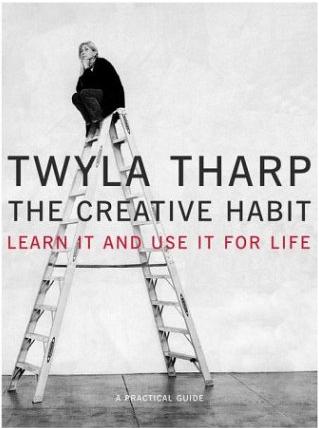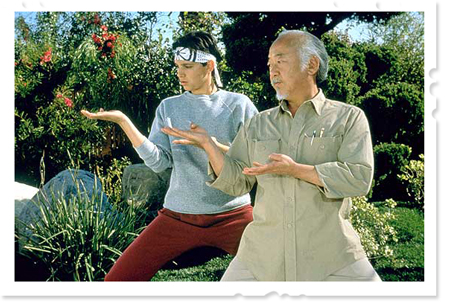
You may not follow baseball.
I don’t.
But there’s a really good baseball player called Alex Rodriguez (often called A-Rod).
He was always headed to be a good player.
But he did something different than most of us.
He decided to be great.
So how do you get to greatness?
http://freakonomics.blogs.nytimes.com/2008/03/11/how-did-a-rod-get-so-good/

Yes it should be. Because we learn best when we’re relaxed.
But most learning isn’t fun at all.
If I told you that you have to learn how to learn the new version of a program, would it be fun?
If I told you that you have to learn the chords to a new song would it be fun?
If I told you that you had to drive to a new part of town, would it be fun?
In most cases, it’s not fun at all
In most cases, the brain has to literally go into a focus mode, because the learning is new.
And that put enormous strain on the brain.
The more complex the activity, the more the brain needs to work out the steps and master them one by one.
And learning becomes difficult. Even tedious. Because you’re making so many mistakes.
Twyla Tharp is a world-famous choreographer and the author of the book: The Creative Habit.
In the book she talks about the fact that talent is created by habit. And that while habit doesn’t have to be routine, it has to be prepared for with routine.And routine often means doing the same thing over and over. And over again. Always tweaking. Always improving. But always aware that the fun begins once you’ve stopped making squillions of mistakes.
Of course this is a contentious topic
Because learning can be designed to be fun. And you can have lots of fun learning a new skill. But most learning isn’t fun.
Because most teachers/trainers/coaches take themselves so darned seriously. Which means there is the boredom factor. And you will run into that boredom factor. And if you can get over the boredom factor, you’ll get a factor of mastery.
And that’s when it will truly be fun.
P.S. When I learn a new shot in badminton, it’s not much fun because I have to learn two-three things to get that shot right. But as I master one thing, then the next, and then the next, I get more control; more mastery. And then it becomes fun. Of course what’s really a lot of fun is simply going into the game and winning all those points playing the shot well.

First you be disciplined. Then you be talented.
When I started playing badminton about three months ago, all the old ladies (who play crappy badminton) were giving me advice. Yes, I was playing so badly. And I paid attention, but only barely so.
You see, you have to know whom to listen to, and whom you have to nod your head to. So instead of taking too much advice from the old ladies (and believe me, no one but that batch was giving me advice) I started working with a coach.
So first we worked on:
1) The grip: 900 times x same shot.
2) The overhead shot: 900 times x same shot
3) The shuffle to the net: 900 times x same shot.
Then something happened.
I only knew three shots. But those three shots improved my game dramatically.
Within these three months, I’ve gone from being beaten in every game, to literally dominating the game no matter whom I’m playing with.
What’s interesting is that we have grades: I’m in the C grade.
There’s the A grade and the B grade.
And I’ve had a chance to play with the B grade.
And play decently well.
And the old ladies get beaten a lot, so they don’t come up to give me advice any more.
But something interesting has happened. The B graders give me advice.
The other day this Chinese guy, Ken Lui, came up to me and said: You’ll be good. But you must be disciplined.
Go down there. Take this shuttle and hit against wall for half hour.
I watch from here.
Then you become better.
So I took the shuttle and like wax-on and wax-off I hit it against the wall and practiced my reflexes.
I’ve been doing the same freakin’ thing every chance I get.
And guess what?
My reflexes are improving.
Now the B players are coming up to me, and saying: Hmmm, you’re getting better.
But the problem with efficiency is always the same.
You need to know what you’re doing wrong, to fix it.
Just looking at things unfolding means nothing. You can watch a game or hundred games, but you need to play.
And you need to make mistakes over and over, and over and over and over. And to make mistakes you have to do the same freakin’ thing or something similar, every darned day. You can’t do it now, and then sit on your you-know-what. You need to do it and do it and do it.
And make the mistakes.
Make them.
Over and over (Am I clearer?)
And you need a coach that points out the mistakes.
And helps you fix them, one by one.
Three important points:
1) You need to implement: Learning is crap by itself.
2) Mistakes must happen. And someone must point the mistakes.
3) Fixing the mistakes is to be done ONE by ONE. (Not altogether).
Most people simply learn.
That’s stupid efficiency.
Stupid. Stupid. Stupid.
They’ll go from one course to another. One coach to another. And get all sorts of advice.
They spend so much time flitting that there’s no time to learn.
They feel good about flitting.
Ah, I’ve learned so much.
Crap!
You’ve learned.
Learning is fine.
Implementation is important.
Mistakes are important.
If you’re not making mistakes you’re wasting time.
If someone is not around to point out the fixes, you’re wasting time.
You’re an idiot.
So how do I know this?
It takes an idiot to know one.
It’s what I did.
Then I found one person: Jay Abraham.
I studied everything I could for three years.
I bought all his courses. I got better.
I even paid for consulting with Jay’s right hand man ( I couldn’t afford Jay at $5000 an hour).
I paid $500 for the consulting (per hour).
Did it hurt me?
You bet it did.
Try paying $500 for advice per hour and see.
Especially when you’re earning $3000-5000 per month.
But I wanted efficiency.
And most people don’t.
They flit from coach to coach.
They flit from trend to trend.
They’re idiots.
And they wonder why they don’t have time.
It takes time for you to work out whom you want as a coach.
It takes time for the coach to work out who you are.
This is a lot of time that’s spent in getting to know each other.
Once you find someone you trust, spend 2-3 years with them.
If they are always ahead of you (Jay wasn’t — he lost the plot when it came to the Internet) then keep following.
Keep learning. But the real efficiency is in implementation. In making mistakes. Double your rate of mistakes and you double your rates of success.
Efficiency is important.
And it doesn’t come overnight.
It took me three months so far.
I’m in in for the long haul.
I want to beat them all.
The old ladies.
The C graders.
The B graders.
The A graders.
Mark my words. In a year, I’ll win the trophy.
Mark those words. I’m serious about getting efficient. And I’ll make it.
Are you ready for efficiency yet?
Depends on if you’ve found a coach, eh? And if you’re willing to hit the same shot 900 times.
Most people aren’t talented because they think it’s some magic trick.
Yes it is. Go do the same thing 900 times and get a coach to watch you do it, and help you fix it.
That’s the trick.
Note: Since I wrote this post, I qualified to be a B player. I had to play three other B players and get enough points to be within five points of the average (it’s too complex to explain). Let’s just say that in the qualification round, I not only came within the average, but beat the average by 5 points. And was second ranked in a group of four (yes, it is confusing). But there you go. I’m on my way, despite the aching back and knees. 🙂
Here’s how I learn.
I read. Or listen. Or watch.
I make a note.
I discuss it with my wife.
I bring it up with my clients.
I post it in my forums.
I post an expanded, detailed version in my blogs.
I write an article for Psychotactics.com
I write four-five angles of the same topic in even greater detail at 5000bc.com
Then it sinks in.
Then I implement.

Any fool can create profit.
It’s the smart ones that can create time.
So first to create time, you have to want to create time.
Yes, you have to want to create time.
Just moaning and groaning about how busy you are, isn’t going to create time.
You can moan and groan, but nothing’s going to change.
So you create time like you create a vacation
If you wish for a vacation in Japan, you don’t get a vacation in Japan.
You have to create it. You have to decide where you want to go.
Buy tickets. Change currency.
But most important of all, you have to make time for the vacation.
So we decided that we’d take 3 months off way back in the year 2004
We didn’t know how.
Or what we’d have to do.
But first the decision must be made.
And the action must be taken.
So we started with one day off on Sunday. No work on Sunday.
Then we took one more day off on Saturday.
We’d soon reclaimed the entire weekend.
This meant that we had to finish what we needed to do by Friday.
We had to. No choice. So when compression occurs, then you’ve got to do what you’ve got to do.
And therefore you find things that make you inefficient.
Pretty soon, we were taking three days off.
Then we’d take three weeks off.
Then slowly but surely, we edged to one month. Then two. Then three.
And here’s the most interesting part of all
What’s interesting is that we made more profit in the years we were away, than the years we stayed home.
What’s interesting is that I got more work done in the years I made time, than in the years I just stayed home.
Compressing time forces you to be smart. Compressing time forces you to be efficient. Compressing time forces you to become more and more talented at what you do.
And suddenly you’re able to learn more about photography, badminton, cartoons, websites, writing, travel (and yes, I’m talking about myself and what I do with my time). And I’m adamant about the fact that putting away fixed time is more important to you, me, and every one. You can’t hope for time. You have to make it.
Most of you will shoot down this idea.
You’re too busy to create time, you’ll argue.
But this post isn’t for most of you. It’s for people who understand that once you create time, you create time.
But you also create greater profit.
You now have time to learn.
You now have time to become skilled in your art.
You now have time to think (when was the last time you did that for a day or more?)
You now have time to not-think. And think of nothing. And help your brain relax.
And from all of the above comes profit.
But I’m sure you have no time for profit.
And so you work harder than before.
You see you don’t need elves to help you out. You can be your own best elf.
If you can make time.
But can you?

The poster for the the movie “Elf”
Now I don’t want to boast, but this is what I do.
I run blogs at:
http://www.psychotactics.com/blog
https://brainaudit.com
http://www.spidersecret.com/
Less frequently at:
http://www.cavechronicles.com
http://www.stickybusinessbooks.com
Write articles, per year:
http://www.5000bc.com (about 100-300 a year)
http://www.psychotactics.com (about 50 a year)
And monitor no less than four to five forums:
On the Psychotactics Courses forum, just this year, the tally is 4000 posts (This includes reviews of articles/websites/and detailed answers to questions which may take as long as twenty minutes per post to answer). On 5000bc, you can find 7000+ posts (we lost about 5000 of my earlier posts when 5000bc crashed in 2007).
I write two courses a year at the very least
Each course has about 200+ pages of notes/graphics (these take a lot of time–the graphics)
There’s audio.
I also present these courses live (which means the Keynote/Powerpoint slides have to be created as well).
I will often do mini courses or mini products.
e.g. The re-write of the Brain Audit book.
On top of this there’s assorted stuff like:
Full colour cartoons for the blog.
Audio files for the blog.
And other assorted requests like Vanishing Reports in 5000bc. etc.
And in the past I’ve created the entire website design, HTML, graphics etc.
I still do the graphics and website design for any new website or revamp (e.g. new Psychotactics and now 5000bc revamp in Dec 2008).
And then I respond to every email for every subscriber (yes, every subscriber).
The question is when do I sleep, let alone go on vacation or anything.
Just reading this list should make you tired.
But here’s what’s happening.
In about 25 minutes I’m off to play badminton.
I’ll be back in 3 hours.
Then have lunch.
Probably go to the cafe.
And that’s the end of the day.
How is this possible?
It is. And there are ways to do all of the above, because though it seems like there’s an army of elves doing all of the above, there’s just Renuka and I. And she likes the trips to the cafe as much. Plus she takes her parents out twice a week, so those days are half-days for her.
How does this all happen?
Where are the elves?
Aha, you didn’t think I’d give the answer so easily, did you?





